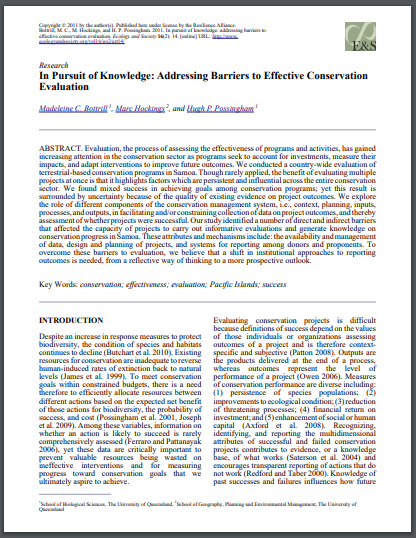
Evaluation, the process of assessing the effectiveness of programs and activities, has gained increasing attention in the conservation sector as programs seek to account for investments, measure their impacts, and adapt interventions to improve future outcomes. We conducted a country-wide evaluation of terrestrial-based conservation programs in Samoa. Though rarely applied, the benefit of evaluating multiple projects at once is that it highlights factors which are persistent and influential across the entire conservation sector. We found mixed success in achieving goals among conservation programs; yet this result is surrounded by uncertainty because of the quality of existing evidence on project outcomes. We explore the role of different components of the conservation management system, i.e., context, planning, inputs, processes, and outputs, in facilitating and/or constraining collection of data on project outcomes, and thereby assessment of whether projects were successful. Our study identified a number of direct and indirect barriers that affected the capacity of projects to carry out informative evaluations and generate knowledge on conservation progress in Samoa. These attributes and mechanisms include: the availability and management of data, design and planning of projects, and systems for reporting among donors and proponents. To overcome these barriers to evaluation, we believe that a shift in institutional approaches to reporting outcomes is needed, from a reflective way of thinking to a more prospective outlook







